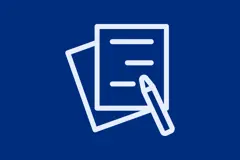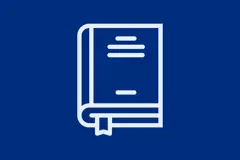The Competency Framework for Governance Professionals comprises 12 competencies divided into three areas within the framework; Values, Practice and Knowledge.
The framework can help practitioners to define which levels they have achieved in different areas of competency and work to fill gaps in their development or to plan their progression from one level of proficiency to the next.
Select an area below and discover a deeper understanding of your competencies by completing your self assessment
The competency framework supports the development of company secretaries and governance professionals by identifying the behaviours they need to perform well in their roles.
Key competencies that support good governance, and the professional behaviours that exemplify them, are identified and split into three areas: knowledge, practice and values. Together, these provide a clear picture of the role and define what an effective company secretary or governance professional knows, does and believes.
The framework helps individuals review and plan their professional development, by describing how each competency can be demonstrated in practice at all career stages. It can also be used as a tool to assess the governance capability within organisations.
All organisations should aim to embed governance structures that add value.
Effective company secretaries and governance professionals enable the board to set and achieve the strategic goals of the organisation. This requires specialist knowledge combined with strong values, emotional intelligence, and the ability to apply understanding in the particular context of the organisation and its wider environment.
Regulatory bodies continue to develop oversight and leadership requirements across sectors, but good governance has never been solely about following legislative, regulatory, and financial requirements. Sector, global, and stakeholder trends must be understood and acted upon. Organisations must accommodate new business practices, broader board oversight and wider considerations such as environmental, social and governance (ESG) issues, sustainability, digitalisation and equality, diversity, and inclusion (EDI).
Accommodating these different requirements creates additional layers of expectation. Consequently, the role of the company secretary or governance professional is one of constant adaptation, often incorporating a much wider remit than the traditional concept of company secretarial and governance professional work; as being purely minute taking or record keeping. It follows that those working in governance roles must continually advance and expand their skills, alongside developing the organisation and its governance model.
The role of the company secretary or governance professional has grown significantly, from technical expert to strategic enabler. Skilled professionals who can engage with stakeholders successfully and balance regulatory compliance with their organisation's commercial interests and social purpose are in high demand.
Chartered membership
This demand has resulted in the creation of governance roles outside the traditional secretariat team in some organisations. The Institute's designation of Chartered Governance Professional, alongside the time-honoured designation of Chartered Secretary, recognises and reflects this, offering a range of routes to qualification and resources to support governance careers. Those who achieve Chartered status are qualified to use either designation, or both, and have the flexibility to present their understanding, practice and values according to their professional context.
Being an effective company secretary and/or governance professional means enabling the board to set and achieve the strategic goals of the organisation. This requires mastery of specialist knowledge combined with strong values, emotional intelligence and the ability to apply understanding in the particular context of the organisation and its wider environment.
The can-do nature of the modern governance professional means that they are often given additional responsibilities, especially within medium and smaller-sized organisations. This can include responsibility for data protection, compliance, HR or facilities functions, health and safety as well as the oversight of strategic projects.
Some company secretaries will work within in-house or professional service teams, whereas others may be the sole governance professional in their workplace and need to draw on networks and other external resources for support. The framework is sufficiently broad to apply to these different contexts, sectors and stages.
A competency framework is a structure that sets out and defines the knowledge and skills people need to perform effectively in their roles. They can be used to set an objective minimum acceptable benchmarks for performance.
Individuals and employers can also use competency frameworks to support professional development by identifying knowledge and skills that need to be acquired in order for someone to perform effectively.
The competency framework can be used to identify the core requirements of a governance role. This is centred on the functions of the company secretary or governance professional but also incorporates aligned functions on the broader governance environment.
The prime purpose is to identify:
-
Governance career paths: identifying the career path for a company secretary or governance professional
-
Career transition into governance: mapping existing and required skills and knowledge for those seeking a transition into a governance role
-
Professional advancement: identifying a clear development and formal ongoing training pathways for professional advancement in governance for individuals and teams
-
Self-assessment: mapping personal capabilities that can be self-assessed against an industry standard
-
Performance and professional assessments: key areas that can be included in organisational performance reviews and professional assessments
-
Career transparency: evidencing where an individual sits within their governance career compared with the industry
-
Recruitment: helping to identify suitable candidates to fill vacancies, supporting hirers, applicants and recruitment consultants with the recruitment of new or replacement roles
-
Development and succession planning: for and within governance teams, identifying in-team progression opportunities, succession needs and team development opportunities.
Career progression and skills maintenance can be achieved through practical application and formal and informal learning and development. In combination, these support the lifelong evolution and maintenance of expertise, eventually leading to the attainment of ‘expert’ status, as identified in the competency framework.
By applying each value and related behaviours from the competency framework, company secretaries and governance professionals can map their career progression. In addition, they can use the framework as a tool to identify areas to refresh or deepen knowledge.
For those joining the profession from an aligned or alternative career, the competency framework can be used to map their skills, providing a clear view of any specific areas that they need to focus on supporting or enhancing their existing knowledge. For example, someone transitioning into a governance role, such as a lawyer, may seek to map their existing knowledge of governance to the competency framework to identify areas where they already possess the required competencies and those where additional learning is required or where they could seek to broaden their skillset.
The assessment tool can be used by company secretaries and governance professionals to evaluate their existing knowledge and proficiency level. It provides a clear explanation of the pathway to complete each proficiency level and can define the levels already achieved within the current role, alongside identifying potential opportunities for continuous professional development (CPD).
As part of a formal appraisal, the competency framework assessment tool can be maintained to evidence development and formal or informal learning and can help to identify the next stages for individual development. Its broad applicability means it can be used to support individuals and teams who may report into or be part of non-governance teams, as well as those who have an explicit governance role. As such, line managers who are not governance experts can use it to support the development of company secretaries and governance professionals without having to develop the same skills themselves.
We recommend that early-career governance professionals' progress against the competency framework is undertaken at least annually by line managers or sponsors. As their effectiveness and career progress, use of the tool may become less frequent; however, they will need to continue to evidence a continuing application of professional standards.
Individuals should actively maintain personal oversight of their performance and progress against each competency, identifying improvement, additional support or further training.
We recommend that all organisations document their adoption of the competency framework, whether in full or adapted so that its application by relevant individuals is consistent and clear.
Levels
Those at the entry level are new to the governance environment, either leaving full-time education or new to an office-based role. They seek guidance on generalised skills and those specific to their new role. While at entry level, they will work under close supervision, gradually increasing their autonomy on specific tasks as they prove their capability. They are likely to be engaged in administrative and operational tasks that support the work of the team.
Early-stage professional qualifications may be undertaken in advance of their practical application, i.e. they may be learning about things that they have yet to apply.
Those at the emerging level are continuing to learn to support performance in their role. They seek guidance and support on a case-by-case basis from peers and line managers. As they develop their knowledge through study and practice, they increasingly work autonomously and gain confidence in their abilities. As their knowledge increases, they may take the lead on specific initiatives and, in larger teams, may have some responsibility for the activities of others.
Practical learning is supported by professional qualifications.
Those at the professional level show mastery in their work and a breadth of understanding of the skills, practices and behaviours required of their role. They are trusted advisers to colleagues, a source of guidance for boards and others, particularly on regulatory and legislative matters and, in larger organisations, may be team leaders. They exercise good judgement across planned and unplanned situations and can react accordingly. They constantly maintain a watching brief on external influences that may affect their organisation.
Practical expertise is extended through professional training to understand the role of the board and the organisation.
Those at the expert level play a valued part in strategic leadership and may have an external role alongside their internal leadership position. They influence the governance agenda, are frequently consulted and often lead on specific initiatives, some of which may not be governance centred. They actively support the development of other governance professionals, both within their organisation and externally. They are seen from outside their organisation as leaders in governance generally and within their sector.
With extensive practical experience and existing professional training, CPD is focused on refreshing, updating and extending existing knowledge






